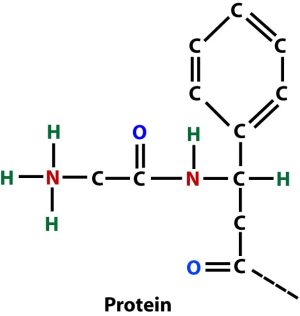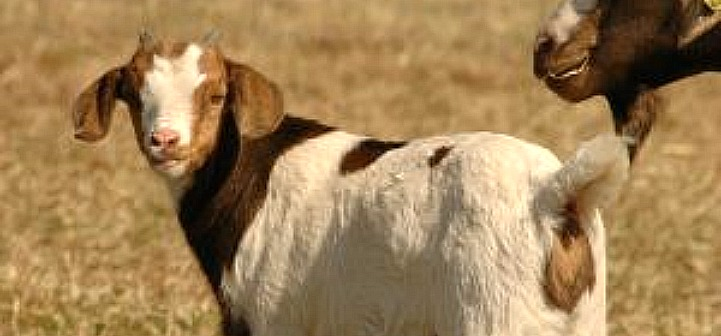Protein
Protein is composed of building blocks called amino acids, which the body uses to produce all the proteins required for growth, production and maintenance. Protein is required in the diet for accumulation of new body mass and for replacing protein lost by normal wear and tear.

Ruminant animals are usually fed supplemental protein to make up for dietary shortfalls. In the rumen, bacteria degrade much of the consumed protein and use the amino acids to form bacterial protein. Bacteria can also form protein from nonprotein sources such as urea and, if provided with sufficient energy, can form significant quantities of protein. To prevent breakdown and digestion by ruminal bacteria, some protein sources are protected from degradation by coating or other means. Some natural proteins are also resistant to ruminal degradation by bacteria. These types of proteins are referred to as “bypass protein” as they bypass digestion in the rumen. Other common terms for bypass protein are “ruminal escape” and “rumen undegraded.” Bypass protein sources are very important in dairy cow nutrition but have lesser significance in most meat goat production systems.
Urea is the main nonprotein nitrogen source fed to ruminants. However, goats are not fed urea as frequently as cattle. This may be because goats are more subject to urea toxicity than cattle. Goats appear more efficient than other species at recycling nitrogen in the body to the rumen where it can be used to form microbial protein, given that sufficient energy is available. This recycling of urea to the rumen helps to reduce the amount of protein required in the diet. When animals are consuming a low quality forage, a grain supplement may also improve protein status by providing additional energy for protein synthesis by ruminal microbes.
Reference: Hart, S. 2008. Meat Goat Nutrition. Pages 58-83 in Proc. 23rd Ann. Goat Field Day, Langston University, Langston, OK.
